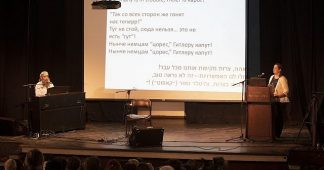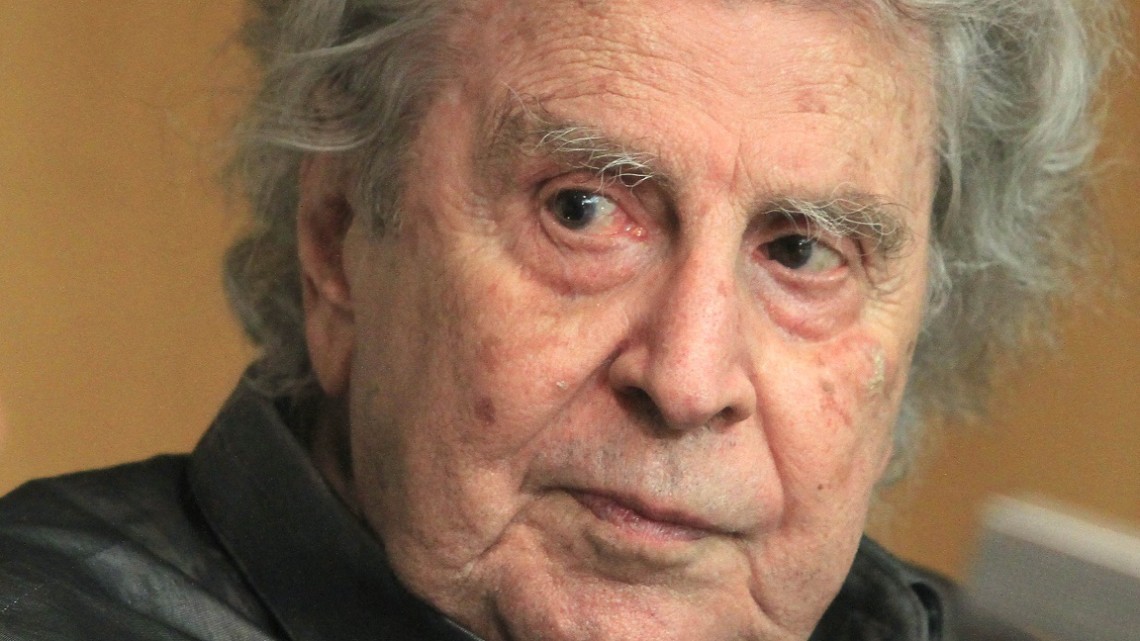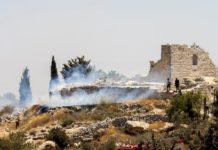We reproduce the following article on the work of the great Greek musician and resistance figure Mikis Theodorakis, as it was published in reporter.gr. We feel the need to specify that Theodorakis and the other artistic figures mentioned were referring always to all victims of Nazi concentration camps, not Jews in particular or any other group. There is not any serious doubt about the heavy toll Jews have paid to Nazi genocide tactics against them. But there were non only Jews in the concentration camps. This fact is less and less mentioned in literature on Holocaust, WWII and Nazism. An average reader worldwide will cross many times during a week references to Jews victims of the Holocaust but he will read very rarely of the 20 to 25 million of Soviet victims of WWII, or the enormous part of Greek and Serb population exterminated by Nazis and of many other victims of the German Far Right and its Italian counterparts. As George Orwell once said, all animals are equal, but some are more equal than others.
As for the indirect implication of the article that Israel is following a policy of peace and international cooperation, we feel that we don’t have to comment it. We suppose our readers adults and self-respecting people.
D.K.
Mikis Theodorakis Wrote the Most Beautiful Music on the Holocaust
By Tasos Kokkinidis
Mikis Theodorakis, the Greek composer who is renowned around the world, is credited for writing the most beautiful music on the Holocaust.
The “Mauthausen Trilogy,” also known as “The Ballad of Mauthausen” is a cycle of four arias with lyrics based on poems written by Greek poet Iakovos Kambanellis, a Mauthausen concentration camp survivor.
The ballad reflects Kambanellis’s own experience at Mauthausen, including his love for a Lithuanian-Jewish woman, as it recounts the love affair between a young Greek prisoner and his Jewish love amidst the atrocities they witnessed at the camp.
Passionate lyrics, haunting melody
The music critic of the Baltimore Sun writes: “Theodorakis had the genius to set this poem with melodic elements from the hymn for Palm Sunday of the Orthodox Church, creating an exquisite, haunting and passionate melody that moves Kambanellis’ affecting words to an even higher level.”
Jerry Silverman, in his book “The Undying Flame: Ballads and Songs of the Holocaust,” writes that “we can be (similarly) enthralled by the passionate lyrics and haunting melody of “Asma Asmaton”” and “(Kambanellis) also wote a cycle of four poems based on episodes in his book, which were lovingly set to music by Mikis Theodorakis”. Silverman also calls Asma Asmaton “extraordinarily moving”.
Sophia Richman, in her book “Mended by the Muse: Creative Transformations of Trauma,” writes: “The song cycle is a requiem for Holocaust victims and raised the consciousness of all Greeks. Its sublime melodic lines, extended harmonies and rhythms, forced listeners to ask, “What happened to our Jews?”
Richman also mentions that the composer “created songs that have entered the pantheon of acclaimed song cycles.”
In a supreme irony, approximately one year after the release of his ballad, during the premiere of the Mauthausen song cycle in London in 1967, Theodorakis was imprisoned in Greece by the recently installed Greek military junta and his music was banned in the country.
The song was performed by Joan Baez and several Israeli artists in Hebrew.
1.
"Song of songs" in #Hebrew (1973)
? ?? #MíkisTheodorákis,
?️ ?? I. Kampanellis,
? ?? L.Yeini.
Scenes in the video are from the ?️ "Night will fall" ? 2.#HolocaustMemorialDay #HolocaustRemembranceDay #WeRemember #Άουσβιτς #Holocaust #Auschwitzhttps://t.co/VXPhIKtSeQ— Άξιος Εστί • ΜΙΚΗΣ ΘΕΟΔΩΡΑΚΗΣ (@Axios_Esti) January 27, 2021
Kambanellis poem “Song Of Songs”
Beyond the bleak and frozen square,
above the yellow linen star,
no heart will ever beat again
because the beautiful have lost
their way to paradise.
All the whys have lost their reason,
braves the will to fight.
If there is a God in heaven,
where was he, sleeping?
Oh, children of Auschwitz,
oh, children of Dachau,
oh, come tell me what became of love,
oh, come tell me what became of love,
oh, come tell me what became of love.
They journey past the land of no returning
where no one could imagine or endure
and there, love begged of God
to sleep no more.
Above the tortured, blackened valleys,
beyond the northern crimson sea,
no bird could ever sing again
because the bitter moon has wept away
the summer sun.
You can rake away the ashes,
but the deed is done.
If there is a God in heaven,
where was he, sleeping?
Oh, children of Mauthausen,
oh, children of Belsen,
oh, come tell me what became of love,
oh, come tell me what became of love.
If there is a God in heaven,
where was he, sleeping?
Published atgreekreporter.com











